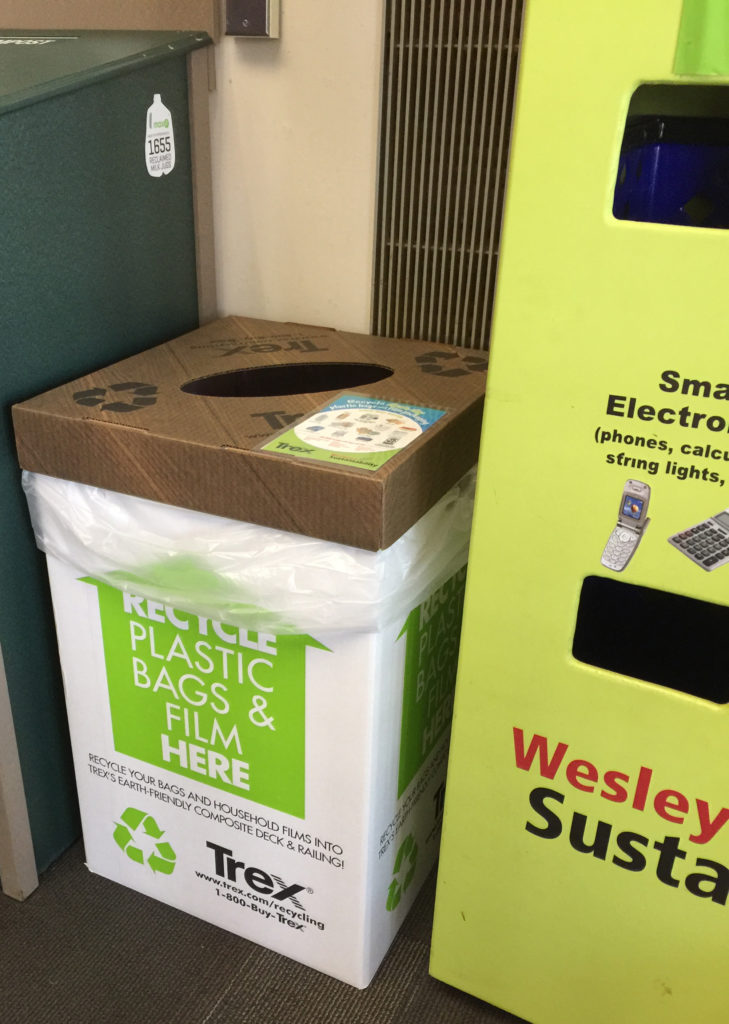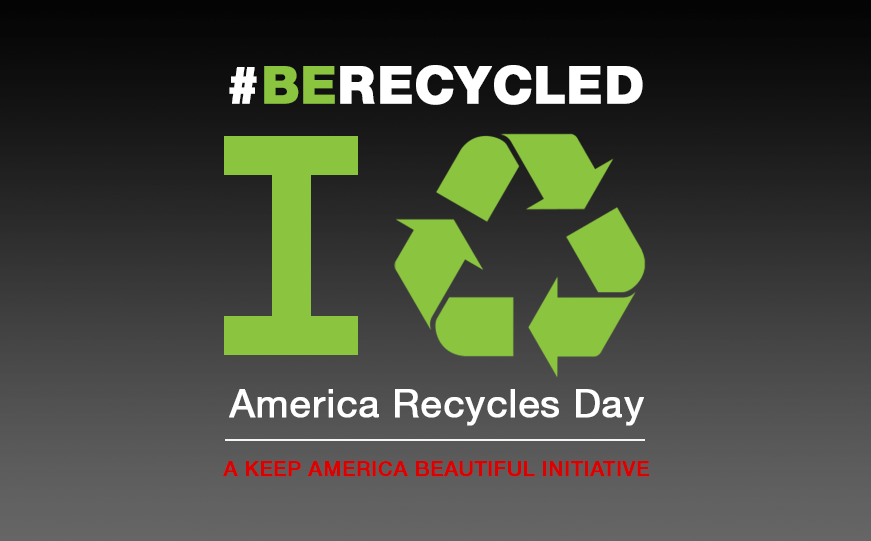Today is the 23rd anniversary of America Recycles Day. Part of the Keep America Beautiful® initiative, the annual observance is dedicated to promoting and celebrating recycling by educating Americans via thousands of nationwide events. Given that community gatherings weren’t really an option this year, the event didn’t make the news cycle. Despite the ongoing pandemic, however, we wanted to call attention — as we believe recycling matters … a lot.

It turns out recycling has been around for a long time. Archaeological studies show that during historic times when natural resources were hard to come by, there was significantly less household waste. Experts believe that people were recycling and reusing existing products instead.
In fact, using recycled or reusable resources has been a part of human history for centuries. Consider the “dustmen” of Victorian-era England, who collected coal fires to assist in brick making, or the wartime conservation efforts of Americans during WWI and WWII, which turned recycled tin, pantyhose, scrap, paper, and rubber into clothing and munitions for soldiers. It’s clear that recycling has played an important role in our relationship with natural resources.
Waste Not (or, at least, repurpose)
The building products industry leads in many areas of sustainability, including energy efficient building practices and reducing landfill waste. It has increasingly become an advocate for recycling and repurposing.
Following are some examples of building product brands and retailers who are making recycling an integral part of their mission and culture:
- AZEK. The AZEK Company recently launched the AZEK FULL-CIRCLE PVC Recycling Program. The new program works directly with dealers, contractors and mill shops to collect, return and recycle scrap PVC from fabrication shops, construction sites and remodeling projects. Made possible by Return Polymers, AZEK’s vertically integrated recycling center, the initiative diverts material that would normally be disposed of in landfills, while reducing overhead disposal costs for contractors.
Once the scrap PVC is collected, Return Polymers sorts and processes it and returns the clean, recycled material to AZEK’s manufacturing plants for reuse across multiple product lines. The company expects the program to collect more than 2.5 million pounds of PVC scrap annually from direct customers and construction sites.
- Trex. Outdoor living brand Trex uses more than 400 million pounds of recycled plastic material each year in the creation of its decking and railing products. A standard 16-foot Trex board includes recycled material from approximately 2,250 plastic bags, as well as recycled polyethylene plastic from typical household items such as sandwich/bread bags, bubble wrap, newspaper sleeves and dry cleaning bags.
Beginning today, Trex is kicking off its annual Trex Plastic Film Recycling Challenge, in which schools across the nation compete to see who can recycle the most plastic material over a six-month period for a chance to win Trex products for their schools. In addition to encouraging healthy competition, the yearly challenge gives students a better understanding and appreciation of the importance of recycling. In 2019, more than 430 schools from across the country participated, collecting over 167,000 pounds of plastic film. Taking recycling a step further, the awards presented to the winners are made from Trex decking boards.
- Lowe’s. Home improvement retailerLowe’s began working with Call2Recycle in 2004 to collect rechargeable batteries. The company offers a recycling center near the entrances of more than 1,700 of its stores and distribution centers to encourage the collection of rechargeable batteries. In addition, the company provides its customers with a free and easy way to properly dispose of cell phones, CFLs (compact fluorescent lamps) and plastic shopping bags. To date, the company has collected and recycled more than 6 million pounds of rechargeable batteries. In 2018 alone, Lowe’s recycled close to 728,000 pounds of rechargeable batteries, 2,300 tons of plastic from its operations, and the weight of 60,000 cars in cardboard.
- The Home Depot. In 2009, the Atlanta-based home improvement retailer launched a recycling program to help reduce plastic potting waste. At all Home Depot Garden Centers nationwide, customers can return their empty plastic pots used to hold flowers, plants, bushes and trees, which growers can then refill. Once the pots are no longer reusable, The Home Depot’s partner – East Jordan Plastics – converts them into new pots, trays and hanging baskets. Each year, East Jordan Plastics recycles more than 15 million pounds of used plastic containers, or the equivalent of 1,000 semi-truck loads of containers. In addition, The Home Depot donates the plastic film used to wrap its products to Trex.
- Yardbird. Yardbird provides outdoor furniture that is fully recyclable and made from 100-percent recycled material. The mission of the company is to enable consumers to purchase stylish outdoor furniture that doesn’t end up as plastic waste at the end of its useful life. In fact, the brand’s products are made from recovered ocean plastic. Yardbird collects plastics on beaches, waterways and other locations in the Philippines, incorporating more than 92,000 pounds of this material into its furniture and packaging in 2019 alone. And, when consumers are ready to retire their Yardbird pieces, the company will even reclaim and repurpose them, giving them a brand new life.
Making an Impact
These programs are important because they not only demonstrate a commitment to the environment and responsible sourcing but also are mindful of the growing concern over waste – including plastic waste – that typically ends up in landfills and our oceans.
While the issue of waste impacts most everyone, it is especially important to Millennials and Generation Z, who are already buying homes – or will be in the near future. When it comes time to make decisions about which products they’ll use and which retailers they’ll purchase from, they’re likely to remember companies and brands with a strong commitment to sustainability.
Interested in learning how your brand can gain visibility for its sustainability initiatives? Send an email to skleber@kleberandassociates.com.




